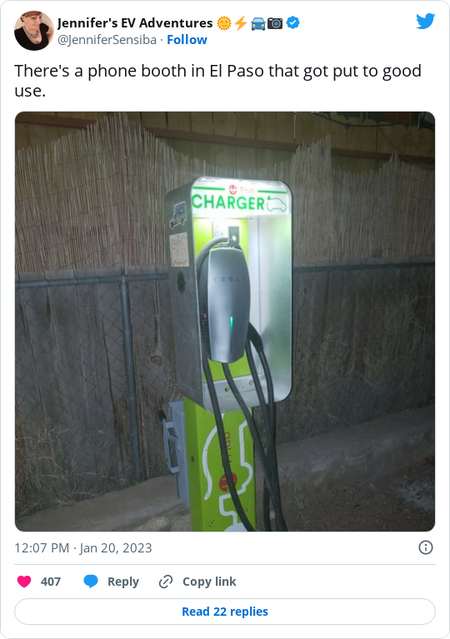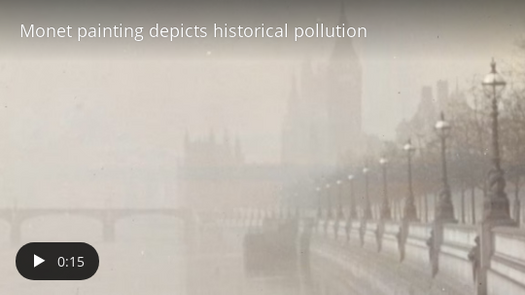| | | | | Welcome! This week, my funeral plans and Monet's pollution-inspired art 🎨. But first, should we tax Kylie Jenner's jet fuel? | |  | | Jetsetters like Jenner get a bad rap for their carbon-intensive lifestyles as the planet teeters on the verge of catastrophic climate change. This is not just bad form, but a major part of our emissions problem, says a paper by the Paris-based World Inequality Lab, a group led by the economist Thomas Piketty. | | It found: - Just 10 percent of the world's population is responsible for half of global warming emissions.
- The world's poor emit a tiny fraction of this. And lifting 3 billion people above the poverty line of $5.50 per day would only bump global emissions by a relatively modest 18 percent, thanks to affordable clean energy, mainly wind and solar.
- That means the biggest emissions gap is no longer between rich and poor nations, but between the rich and poor within countries. That's a reversal from just a few decades ago.
| | Those are clarifying numbers, says Nathaniel Keohane, president of the Center for Climate and Energy Solutions, a climate change think tank. "There is not some fundamental trade-off between economic growth and addressing climate change," he says. "We don't need to choose between those two things." | | This may force equity into more climate conversations at home. "It suggests that to achieve climate fairness, it's increasingly important for each society to address its own economic and social inequalities," says Clark Williams-Derry at the Institute for Energy Economics and Financial Analysis. | | We'll need carbon-free ways to power the growing middle class, regardless of where they live, and address enormous emissions at the top of the income pyramid. We already have some of the technology to do this, but it's not clear who will pay for it. | | The World Inequality Lab wants a (long-shot) global wealth tax and phasing out $5.9 trillion in fossil fuel subsidies. Economists like Keohane favor incentives, like those within the Inflation Reduction Act, and pricing emissions, like say, a tax on Jenner's jet fuel. | | Ultimately, reducing these inequalities is not just a moral question. In the long term, it's in everybody's best interest, rich and poor. A planet that warms beyond 2C will produce far more losers than winners. | |  | | Bits of insight collected as we explore how to adapt to our changing planet. | | To cut back on emissions, we'll need to revamp the old and obsolete, like this pay phone at the DeadBeach Brewery in El Paso.  | | | | This is happening on a grander scale as well: New York City's largest natural gas plant wants to turn itself into a wind power hub. Electrical cables from offshore wind farms would pass through it into the heart of the city, one of the first fossil fuel plants to repower with renewables. What's your favorite picture of how to repurpose old infrastructure? Send it to climatecoach@washpost.com | | | A study found that as industrial air pollution increased, skies in paintings became hazier, too, The Washington Post's Kasha Patel reports.  | | | Week by week, we will highlight the ways in which the Biden administration is reshaping the nation's environmental policies. | | Even as the Biden administration indicated it would allow major oil drilling to go ahead on Alaska's North Slope, it blocked construction of a controversial gold and copper mine near Alaska's Bristol Bay. | |  |  | | From The Post: Greenwashing fashion is in vogue. Here's how to decipher misleading marketing labels for your clothes, from "vegan" to "ethical." Understand the climate impact of your food. Soy and oil palm come out among the winners per calorie. Perhaps avoid the shrimp. Meet the man who triggered the war over gas stoves: The son of a labor icon unwittingly steps into the spotlight. Biden is touting giant EVs like the 9,000-pound electric Hummer. Are they actually good for the planet? Hint: A Toyota Corolla running on gasoline emits less carbon dioxide. | | From elsewhere: Josh Spodek, an executive coach, lives off-grid in a Manhattan apartment. The AP followed him to understand how he powers his life with just a portable solar panel and battery pack. It's now more expensive to run 99 percent of America's 210 coal plants than building new solar or wind farms. You can thank, in part, incentives in the Inflation Reduction Act, the Guardian reports. | |  | | Each week, we'll ask for your opinions and answer questions about living lighter on the planet. | | Thank you for all the letters about my column on green funerals. Several of you asked what I'm planning to do for myself: I had arranged a natural burial in my will (thanks, FreeWill), but I've discovered so many new options in this research, I may yet change my mind. Also thanks to Franci in Millcreek, Utah, for the kind words. "It seems like every bit of information I get these days … is nothing but bad news about all the things that are wrong with our society, our politics and our world. It all just leaves me so frustrated and feeling helpless!" she wrote. "Your new column is the first thing I've seen in ages that gives the average citizen some constructive information about things they can actually do to make our world better." | |  | | Winter is here, but we haven't had time yet to bring Miska to see the "absolutely astronomical" snowfall the atmospheric rivers dumped on California, easing our worst drought in 1,200 years. Here she is on the couch, contemplating a trip to see those flakes before temperatures rise. | | | And I'd love to hear from you about how climate change is affecting your life (or your bored husky). Send words or photos to climatecoach@washpost.com. | | See you next Tuesday, Michael Coren, Climate Coach | | | | | | | | | |
No comments:
Post a Comment